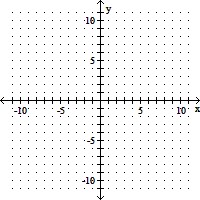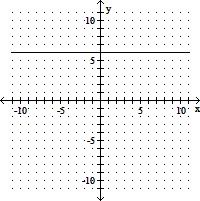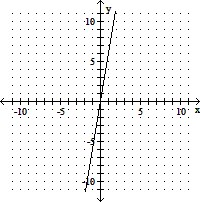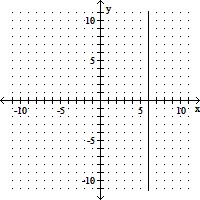Find the inverse. Determine whether the inverse represents a function.{(6, 5), (-1, 6), (-3, 7), (-5, 8)}
A. {(4, 3), (3, 8), (6, 10), (4, 5)}; not a function
B. {(4, 3), (6, 8), (6, 8), (4, 5)}; a function
C. {(3, 6), (4, 10), (5, 8), (6, 6)}; not a function
D. {(3, 6), (4, 10), (5, 8), (6, 6)}; a function
Answer: D
You might also like to view...
Estimate the answer from the table or graph.The profit earnings for XYZ company are reported quarterly. The earnings as a percentage of the yearly earnings for 2012 are shown in the pie chart. If the earnings in the first quarter were $55,000, what were the earnings for the whole year?
A. $275,000 B. $27,500 C. $220,000 D. $110,000
Perform the indicated operation. Simplify the answer when possible.5 + 6
+ 6 + 2
+ 2 -
- 
A. 18 + 20
+ 20
B. 16 + 32
+ 32
C. 76 + 56
+ 56
D. 78 + 44
+ 44
Solve the system of equations by Gauss-Jordan elimination.
A. {(0, 0, 11)} B. {(2z + 7, -3z + 4, z)} C. {(2z - 7, -3z - 4, z)} D. ?
Graph. Label any intercepts and determine the slope of the line. If the slope is undefined, state this.x = 6
A. x-intercept: (0, 6), m: 0
B. x-intercept: (0, 0), m: 6
C. x-intercept: (6, 0), m: undefined
D. x-intercept: (6, 0), m: 
